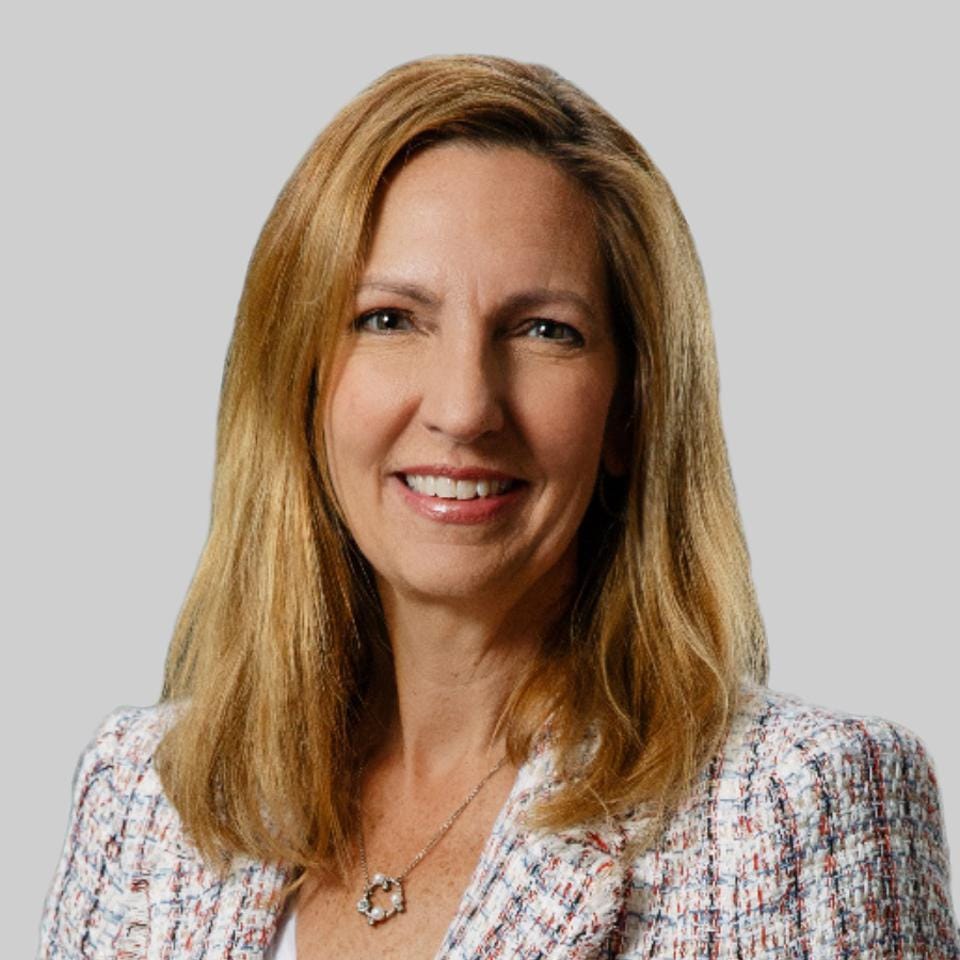
Alliance Data (NYSE: ADS) is a leading provider of data-driven marketing, loyalty and payment solutions serving large, consumer-based industries. Valerie Greer joined the company as executive vice president and chief commercial officer in June of 2020 to help lead the company’s strategic transformation.
We spoke recently about the recent transformation, trust and the role that partnerships have played in her career.
This interview has been edited and condensed for clarity.
Karen Walker: You accepted this role in June 2020, when most people were sitting tight in their jobs. Why did you choose this organization? What were your goals?
Valerie Greer: Yes, we were one quarter into the pandemic. I was aware of Alliance Data from my years in the industry. I started in household finance at HSBC, then moved to Chase, where I expanded across co-brand, small business, consumer and several other product sets. I then moved to Citi, where I ran the co-brand business.
ADS was always a competitor. I was excited about the opportunity to take an organization with a strong DNA in the partnership side of the business – that was historically focused on payments – and to think about investments in critical areas that focused on long-term growth and sustainability.
The leadership was a key factor in my joining. The new CEO, Ralph Andretta, had just started. His vision about where the organization could go aligned with mine. It was a very welcoming environment, even when our collaboration primarily took place during video calls.
Walker: You were onboarded in the pandemic without face-to-face meetings?
Greer: I’ve been here just over a year, and yes, until recently I’ve only been on videos calls with most people. We’ve just been able to meet in person and sit down in a 3D version. It is such a treat as we come back to the office. Getting to connect with people once again is uplifting and very energizing.
Walker: It sounds like you’ve got collaboration and partnership in your DNA. What attracted you to the partner model?
Greer: You’re right. I have been in the partnership space for a long time and I enjoy it. It’s a very dynamic industry. One day you might be talking to somebody in the beauty segment, on the following day it could be the home improvement segment, then the hotel industry or the airline industry. You’re constantly learning about different industries and what’s important to them.
Walker: You compete against companies which are a hundred times larger than ADS. How do you position against that, and what is your strategy for selling against that?
Greer: If you think about Alliance Data five years ago, it was very partnership-driven and focused on specialty apparel (soft-lines). There was very high integration at point of sale and in loyalty programs, and a lot of exchange and management around data.
The company focused on data to drive engagement, new accounts and to maximize average order value. That was the fundamental foundation of the organization. It competed exceptionally well.
Then over the last year, I made investments in a broader product set.
We’ve taken the soft lines core and the supporting data and analytics and expanded that into co-brand. You can imagine that loyalty and data are very easy to leverage across product sets. We put a consumer lens across those industries, but understand they have very different strategies in terms of engagement.
We are now in the wallets of one in six customers in the U.S. We are focused on the relationship and continue to build on it as people’s needs grow and evolve over time. As an example, last winter we bought fintech company Bread. They offer “buy now pay later” installment lending.
We took a private label focused product company and built to the point that our total addressable market is over $7 trillion. We have installment lending, we have “buy now pay later,” we have co-brand, we have private label and, uniquely, all of those products could be white label. They can be in the brand of our partner of choice, that’s a differentiated value. We are now able to provide both the consumer and the merchant a consumer choice based on what is right and relevant for them using data and analytics.
Walker: I’m thinking about the trust involved with being in one in six wallets. That’s a fantastic statistic. You are essentially the back office making all that happen. I imagine that one in six people don’t know that you’re in their wallet.
Greer: You’re absolutely right. We do lean into our brands. We want to be known for coming in and adding value. There are other models – for example, encouraging customers to download your app and then using that app as the start of the shopping journey versus the merchant being the start of the shopping journey. In many ways, that model is dis-intermediating the merchant by changing the initial destination point. For us, that initial destination will always be the merchant. It’s a different lens through which we run the business.
Walker: What is a chief commercial officer? Are you a CRO by any other name?
Greer: In our space, a CRO can also be chief risk officer, but yes, it’s very much running the revenue side of the business. In my domain, I’ve got client partnerships and I stood up a marketing center of excellence. I’ve got new business strategy, networks and a new digital team, so we have a full digital product team. Bread is also part of my organization. We are the driving organization’s revenue through our go to market strategy – the sales and product.
Right at the beginning for me, one of the great things about ADS was the talent. There are people on my team who have been here a long time – they are super talented, really know the space, share that strong DNA on the partnership side and in private label. I added in some leadership around the digital side.
Walker: About your leadership – if you think about a two-by-two matrix, the place we want to be headed is up and to the right. I wonder if there were pivotable moments when you could see that you and your career were moving in that direction?
Greer: Yes, when I stepped out of my comfort zone and went into business development, the M & A side of the business. It had very clear goals and expectations, and whether you were succeeding or not was visible to everybody in the organization.. That was a lot of pressure.
Twelve to 18 months after that, I was successfully driving business in an area that was very male-dominated at the time (and still is to a large degree). That experience gave me a lot of confidence in my ability to try new things, even in areas where I wasn’t the subject matter expert. I had great mentors during that time who encouraged me, and I learned that I could lean in and pick it up what I needed.
The ability to drive sustained growth set my brand in the market. I think that’s important. Many M&A folks might drive growth, but sustainability is not part of their mandate. I brought a holistic view that said, “It’s about a partnership that pulls together and is sustainable for the long view.”
Learning is essential. I believe that you can expand your skill set and develop the self-confidence to excel in areas where you never thought you would succeed, and I try to encourage others to do that. Because there are always good reasons to say no to an opportunity, and sometimes you just need that little extra reason to say yes.
